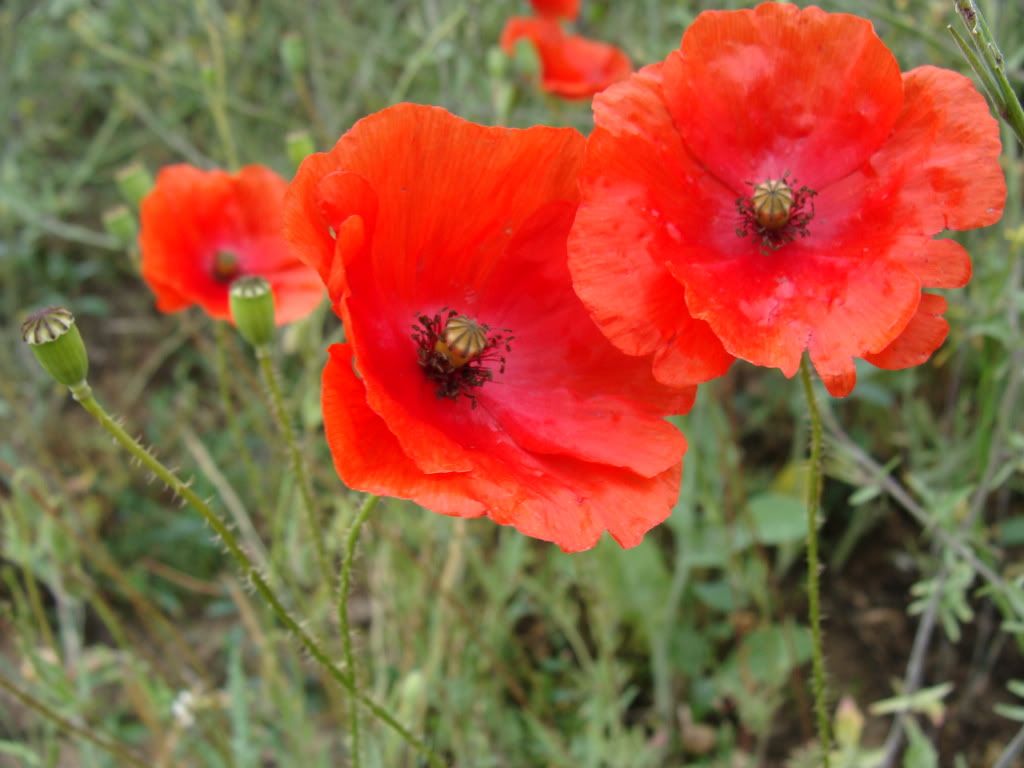I wrote about weeds and seeds last time. As I walked around the other plots today I couldn't help noticing just how many are overtaken by weeds - and all in seed, causing no end of further problems - remember - one year's seeding, seven years weeding. It is so important to stay on top of them, using the hints and tips I gave last time. At the very least remove all those that are shedding their seeds to the wind and blowing across all your neighbours' plots! Golden rule - Never let weeds flower!
Today I cleared the cabbage patch - we have been eating wonderful cabbages over the last few weeks - and then covered the area with a liberal quantity of horse manure. It is not well rotted - quite a way to go in fact - but over the winter the worms and slugs and other bugs will do their work on it ready for a light forking over next year before planting potatoes there - as part of my crop rotation.
And then I emptied one of the compost bins and spread the wonderful crumbly rich compost (picture left) over any spare soil I could find around the plot - mulching the beans, in between the beetroots and radishes and courgettes, top dressing the asparagus bed etc. There were altogether about 5 wheelbarrow loads. And it won't take me long to fill the bin again - it has already received all those poppy plants from the other day and as I continue to harvest potatoes, there will be all the tops from those to add - and any weeds I pull up from day to day - and by this time next year I will have another quantity of compost to spread again!
My next job will be to remove the oldest strawberry row. It has cropped for 4 years and the fruit is getting smaller - so I will dig them all up and start a new row with runners from the other plants, and spread manure liberally around them before the winter sets in. Strawberries should be rotated in the same way as other crops.
 Photo right is of one of the poppies I missed the other day - but the seed head (fruit) hasn't ripened yet so it is not doing any harm. I must cut it off before it matures and starts scattering the seeds everywhere!
Photo right is of one of the poppies I missed the other day - but the seed head (fruit) hasn't ripened yet so it is not doing any harm. I must cut it off before it matures and starts scattering the seeds everywhere!I do love them on the plot - and they encourage many bees and hoverflies - essential for pollinating and setting the peas and beans.
By the way, my wooden compost bins have slatted sides that can lift out to make removal of compost easier, and a thick "duvet" to cover the rotting plant material to keep the temperature up in the bin - essential for killing any weed seeds etc.and for optimum rotting potential.







